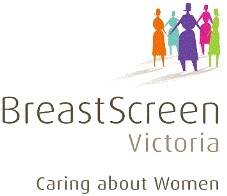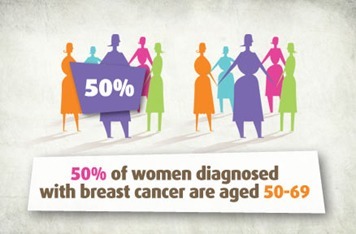BreastScreen Detected Breast Cancer
The experience of receiving a screen-detected diagnosis of breast cancer can sometimes be especially shocking and traumatic for women because of a lack of prior expectation of the diagnosis and the absence of any symptoms. Breastscreen Australia, our national population-based mammographic breast cancer screening program, takes women to the point of establishing the breast cancer diagnosis, and women then undergo their breast cancer treatment outside the Breastscreen program.

Women who are diagnosed with a screen detected breast cancer are faced with a number of decisions. The first is usually that of selecting a breast surgeon. Establishing a treatment plan, as typically occurs following consultation with a breast surgeon, allows a woman to have a sense of control over her disease and tends to immediately decrease levels of anxiety. For this reason we offer a Rapid Access Appointments service specifically for women with a confirmed or strongly suspected breast cancer diagnosis, enabling women, such as those diagnosed through Breastscreen, to schedule an appointment to see a specialist breast surgeon as soon as the diagnosis is made or even strongly suspected.
The issues to consider for women with screen detected breast cancer in selecting a breast surgeon are broadly the same as for women diagnosed with symptomatic breast cancers. Women who are diagnosed with a screen detected breast cancer may however be completely unprepared for these decisions, especially if they have not have given the possible diagnosis any prior consideration. See Choosing Your Breast Surgeon and What to Consider. In addition, as these women are commonly fit and healthy, they are often unfamiliar with navigating the health system. Many may not even have a regular general practitioner with whom they can discuss the diagnosis and from whom they can seek advice regarding onward referral.

Higher survival rates from breast cancer have been linked to higher volume case load surgeons in North America, Europe, Asia and Australia. See Benefits of Specialization. This is felt to be
related in part to a higher likelihood of specialist high volume caseload surgeons discussing patients in multidisciplinary cancer meetings and often a higher onward referral rate for adjuvant therapies. It is also generally accepted as reflecting a higher surgical skill development from managing higher case loads. This is actually particularly relevant in the surgical treatment of screen detected cancers, approximately half of which are impalpable and nearly fifty percent less than 10mm in size. These small, impalpable cancers can in fact be technically more challenging for the surgeon than larger, palpable symptomatic cancers. Considerable surgical expertise and experience is required in the excision of impalpable lesions, which require some form of preoperative image guided localisation- see Microcalcification / Hookwire Localisation.
A Scottish study looking at factors affecting outcome of patients with impalpable breast cancer detected by breast screening demonstrated that experienced breast surgeons were more than twice as likely to remove an impalpable tumour successfully with satisfactory pathological margins at one operation. BJS, 1996. A Welsh study measuring the relationship between specialisation, as estimated by surgeon caseload, and outcomes in the breast screening population, found that patients managed by higher volume surgeons survived significantly longer. BJC, 2006.
The strength of the link between breast surgeon specialisation and patient outcome is such that in the United Kingdom, as a quality safeguard, minimum caseloads are recommended for performing breast surgery, especially for the surgical treatment of screen detected breast cancers. Both the National Health Service Breast Screening Programme (NHSBSP) Quality Assurance Guidelines for Surgeons in Breast Cancer Screening and the Association of Breast Surgery at BASO (British Association of Surgical Oncology) Surgical Guidelines for the Management of Breast Cancer, 2009 state that the surgical treatment of patients with breast cancer should be carried out only by surgeons with a special interest (defined as at least 30 surgically treated cases per annum) and training in breast disease, and specifically that surgeons involved in the treatment of screen detected cancers should maintain a surgical caseload of at least 10 screen-detected cancers per year.
If you have been diagnosed with a screen detected breastcancer, download and complete our Rapid Access Bookings Form
You will need the Adobe Reader to view and print these documents.
![]()











